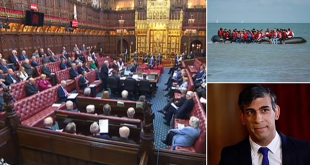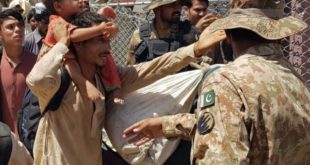China always been a friendly neighbor to Afghanistan and respects the country’s sovereignty, independence and territorial integrity: Su Ge
AT News Report-KABUL: Addressing the second day of Herat Security Dialogue, Deputy Minister of Defense Ministry, Tamim Asey termed the new US strategy on Afghanistan and South Asia as a realistic policy to eradicate terrorism and that the regional countries should support it in true letters and spirit to make sure peace and stability for all.
He said for the first time we see clear identification to the problem of terrorism by the US in the newly outlined Trump strategy on South Asia.
According to him, the policy is dominated by Afghan perspective which meets the national interests on Afghanistan. He said a peaceful and developed Afghanistan is key to regional peace and stability.
He added that some elite politicians lambasted US strategy, but the criticism mostly because of their individual concerns. “I think they would also put weight behind strategy once their concerns addressed.”
“The US is in this war to win. First of all for its own security, but also to vindicate the sacrifices made by nearly 2,000 US soldiers until now. Second that a hasty withdrawal or a rapid exit would create a vacuum to be instantly filled by terrorists as they did in Iraq in 2011,” former Indian ambassador to Kabul, Gautam Mukhopadyay said.
However, representatives of Iran and Pakistan reacted negatively to the US new strategy and termed it a war plan.
“This strategy consists of three points: One is to hold Iran under check, the second is to find alternative route to central Asian countries to overcome influence of Russia and China,” Iran Strategic Studies Center’s Deputy Head, Husain Malik said.
“There is no shadow for peace. It is a military policy, it is a policy dictated by the Pentagon,” Juma Khan Sofi, a lecturer at Pakistan’s Peshawar university said. However, Sufi as a result of tough and facts-based questions and criticism by the participants came under pressure and failed to logically defend his country’s role—a country that had long been sheltering and exporting terrorists.
In the meantime, the US and China’s representatives meanwhile expressed their support to the Afghan-led and Afghan-owned peace process.
“China has always been a friendly neighbor to Afghanistan and respects the country’s sovereignty, independence and territorial integrity,” said Su Ge, president of China Institute for International Studies under the ministry of foreign affairs.
“Obviously we are still struggling with the bureaucratic aspect of how we want to engage with Afghanistan beyond the military fight here. But ultimately this is the point that I want to convey to our Afghan audiences what the US strategy is, the military strategy, does not matter because as it has been reiterated many times there is not a military solution to the Taliban insurgency,” said Briann Todd, professor at US National Defense University.
Dawood Muradian, head of the Afghan Institute for Strategic Studies, Kai Eide, former representative of the United Nations for Afghanistan, Dr. Rangin Dadfar Spanta, former national security adviser, Herat governor, Mohammad Asef Rahimi were also among those who addressed the conference.
The sixth international conference hosted by Herat was based on security dialogue aimed at building regional cooperation to strengthen the Afghan security forces.
The topics and questions of the conference were composed of interaction between national sovereignty and independence, alliance, dependence, hegemony and globalization, paradigm of failed/failing states and lesson learned, state-system in the age of Global War on terrorism, democratic state, challenges and opportunities for democratic state, non-western concepts of nation-states, concept of state in Islamic thoughts and practices, decentralized state vs centralized state and constitutional design for post-conflict societies.
 Afghanistan Times
Afghanistan Times




